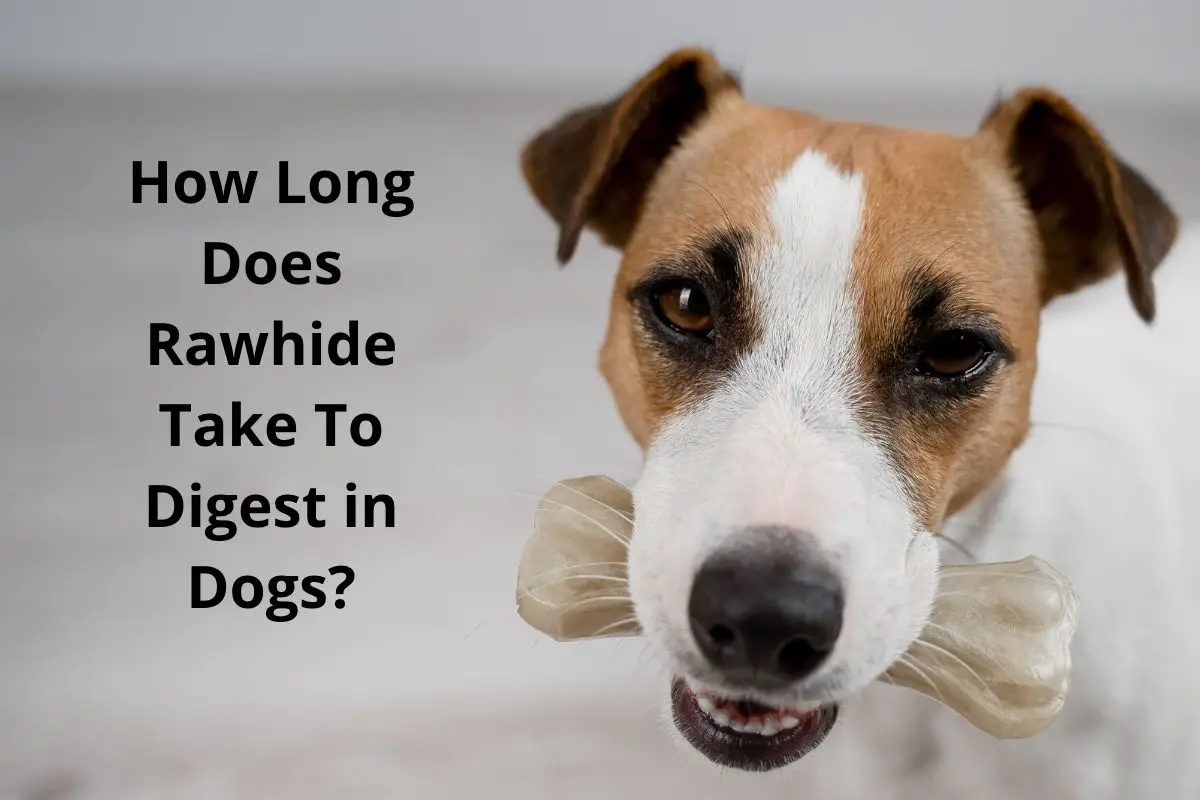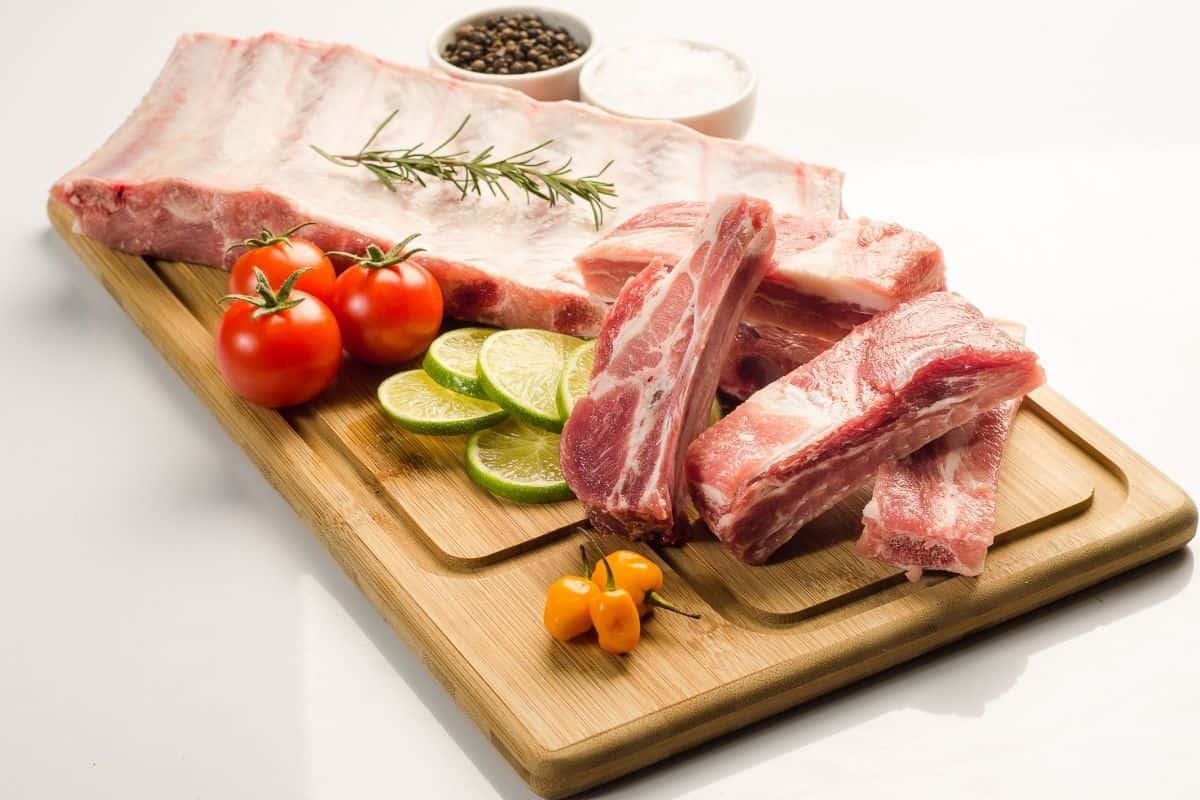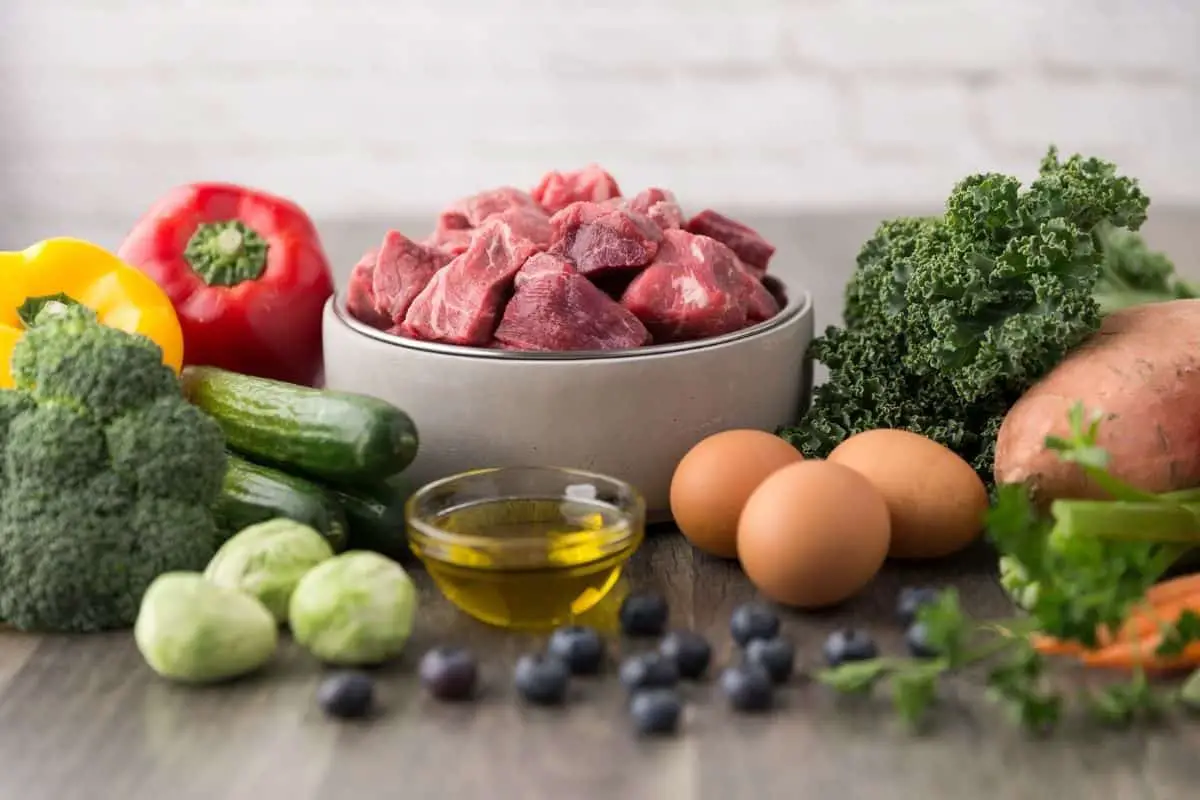This post contains affiliate links.
If you’re a dog parent with a particularly energetic pet, you probably reach out for a rawhide treat once in a while to keep your dog from chewing on shoes and upholstery. However, many pet owners are concerned that rawhide might remain undigested and trigger a host of health complications in their dogs.
Rawhide can take from 3-6 hours to up to 3-5 days to digest in dogs. Sometimes rawhide may remain undigested for months. According to the American Kennel Club, the time needed to digest rawhide depends on the breed of the dog, its chewing style, and the ingredients and thickness of the rawhide.
Rawhide chews aren’t safe for all dogs. Despite owners being careful and watchful, accidents occur, and dogs swallow large chunks of rawhide that can cause intestinal blockage. The rest of this article will explain what factors determine how quickly rawhide breaks down in a dog, the symptoms of intestinal blockage, and safe rawhide alternatives.
Does Rawhide Break Down in a Dog’s Stomach?
Rawhide does break down in a dog’s stomach, albeit not easily. Smaller pieces of rawhide may not be digested but can pass out when the dog poops. Larger pieces take longer to break down and can remain in the dog’s stomach for months and cause gastrointestinal obstruction.
How quickly rawhide is broken down depends on its ingredients and the size of the rawhide chunks your dog has swallowed. Rawhide takes longer to break down if your dog has gastrointestinal problems or an upset stomach.
Read on as I explain the factors that determine how long it takes for rawhide to be digested in dogs.
Chewing Style of the Dog
Some dogs chew slowly, so they don’t swallow large chunks of rawhide. Chewing slowly ensures that they break down into small bits any large piece of rawhide that may break off. These small pieces of rawhide can be digested quickly.
However, small puppies tend to gnaw at rawhide treats. Gnawing can cause big pieces of rawhide to break off.
Puppies are playful animals, and they’re always ready to pounce on the next thing. So, they tend to gulp down whatever is in their mouth. They may not chew adequately and swallow a big piece of rawhide, which can cause gastrointestinal obstruction.
Breed and Age of the Dog
The chewing style of a dog depends on its breed. A Chihuahua chews more slowly and softly than a Rottweiler.
Usually, chewing softly and slowly doesn’t lead to big pieces of rawhide breaking off. More vigorous chewers tend to chew off large chunks of rawhide with a few bites.
The chewing style of a dog also depends on its age. Puppies and senior dogs have softer mouths than adults and chew slowly and softly.
Ingredients in the Rawhide Product
Rawhide treats contain the inner layer of a cow or horse’s hide. During processing, the hide is cut, whipped, or minced. Rawhide treats may also contain chicken, beef, or liver flavorings to make them more enticing to dogs.
How quickly rawhide bones and treats break down inside a dog’s stomach depends on the ingredients. Some ingredients can be digested more rapidly and easily than others.
Minced or ground rawhide takes less time to break down inside a dog’s stomach than cut rawhide. Treats made with cut rawhide also tend to break off easily into large chunks, get swallowed by the dog, and remain undigested in the stomach for days.
Thick rawhides don’t break off easily, and your dog can chew on them for longer without bits and pieces breaking off.
General Health of the Dog
Rawhide can take a long time to break down in your dog’s stomach if they have gastrointestinal disease or diarrhea. These ailments tend to make digestion sluggish so that your pet may take longer to break down rawhide even if they swallow only small pieces of it.
Are Rawhides Bad for Dogs?
Rawhide isn’t bad for all breeds of dogs. You can safely offer rawhide treats to dog breeds that are soft and slow chewers. Rawhides can pose a choking hazard or cause intestinal blockage in dogs that are heavy chewers and tend to bite off large chunks.
You must ensure that you offer appropriately-sized rawhide treats to your dog.
Additionally, you must keep an eye on your puppy after you’ve offered them a rawhide treat. Although puppies are generally soft chewers, some tend to gnaw at the rawhide and tear it into large chunks. Take the rawhide from your furry baby if you notice any gnawing.
How Do I Know if My Dog Has a Rawhide Blockage?
Rawhide tends to swell inside the stomach and can remain undigested for days. There’s a risk that a large piece of rawhide can cause intestinal blockage in your dog.
Intestinal blockage can hamper the passage of food and the absorption of nutrients. Severe blockage can also obstruct the flow of blood into the intestines.
You know your dog has rawhide blockage if you notice symptoms like abdominal bloating or pain, burping, excessive drooling, difficulty passing stool or not passing any, lethargy, forceful vomiting, and diarrhea. The symptoms may appear within 10-24 hours after ingesting rawhide.
Some other symptoms of rawhide blockage can include:
- Dehydration
- Depression
- Weakness
- Weight loss
Although these symptoms can indicate an underlying illness, it’s best to take your pet to a vet, especially if you gave it a rawhide treat before the appearance of the symptoms.
Safe Rawhide Alternatives for Dogs
Besides being a choking hazard and causing an intestinal blockage, rawhide can also cause contamination, as it isn’t always known where the rawhide was sourced from and what ingredients went into the manufacturing of the product.
The Humane Society and the ASPCA (American Society for the Prevention of Cruelty to Animals) discourage offering rawhide treats to dogs.
Pet owners now wonder if there are safer alternatives to rawhide. There are quite a few.
Below is a list of safe rawhide alternatives for dogs:
1. Frozen Carrots
Carrots are all-natural alternatives to rawhide. When you freeze carrots, they become tough. They’re excellent, long-lasting chews for your dog.
Frozen carrots are also low-calorie treats and perfect for dog parents who keep their pets on a weight watch.
In addition to carrots, you can freeze pumpkin slices and bananas and give them to your dog instead of rawhide.
2. Bully Sticks
Bully sticks are tendon types of chews and are easy on your pet’s tummy. They’re high-protein, low-fat chews that don’t contain fillers and additives like carbs and grains. So, they’re easy to digest.
However, some bully sticks tend to leave a foul odor in your dog’s mouth. Look for ones that are marketed as “low odor.” Below are my recommendations for bully sticks for dogs. Both are available on Amazon.com:
- Cadet Bully Sticks Dog Treats: These dog treats contain nothing but beef pizzle. These long-lasting chews are slowly roasted to bring out the flavors of the meat. These bully sticks are high in protein, easy to digest, and are available in different sizes to suit different breeds of dogs.
- Nature Gnaws Bully Sticks for Dogs: These long-lasting bully sticks contain only beef pizzle that’s cleaned with water (no chemical treatment involved) and slow roasted for up to 72 hours to bring out the savory flavors of the meat. Nature Gnaws has no additives, fillers, coloring, or preservatives, as it goes through stringent human-grade food testing procedures to ensure there’s no bacterial contamination.
3. Sweet Potato Chews
Sweet potato chews are easy on your dog’s digestive system. They contain large amounts of fiber and antioxidants that benefit your pet’s gut health. Sweet potato contains vitamins A, B, C, potassium, and manganese.
You can dehydrate the sweet potato chunks or slices in the oven. They become rough at the edges, and therefore, gently massage and scrub your dog’s teeth and gums.
4. Venison Ears
Most pet stores carry venison ears. These treats are low in fat and less greasy than pig ears and cow ears. They’re also less smelly!
However, they’re tasty and tough enough to keep your pet busy for hours. Venison ears are ideal for dogs that are allergic or intolerant to fish, chicken, beef, or pork.
5. Dried Fish Skin
Dried fish skin is a lean, high-protein snack for your dog. It’s a rich source of omega-3 fatty acids that keep your pet’s coat healthy and shiny.
You can choose from cod, redfish, salmon, or wolfish. Dried fish skin chews can have a chewy, crispy, crunchy, or jerky-like texture.
6. Uncooked Bones
Uncooked bones are safe chews for large breeds and aggressive chewers. The marrow in raw bone is packed with nutrients. Besides being rich in calcium, phosphorus, and several other minerals, raw bones also provide an excellent jaw workout.
Keep the following in mind:
- Buy an appropriately-sized bone for your dog. The rule of thumb is that the bone should be larger than your dog’s mouth. If it fits, it’s too small, and dogs can swallow it accidentally.
- Buy a hip or a femur bone from a large animal. Bones from these parts of large animals like a cow or a bison are tough and last for many hours.
- Buy rib bones for small dogs. Rib bones are soft and the ideal size for small dogs.
- Don’t cook the bone. Cooked bones tend to splinter and can puncture your dog’s stomach.
- Place a towel under your dog. It can get slightly messy when your dog chews on a raw bone.
7. Himalayan Cheese Chews
Himalayan cheese chews are excellent rawhide alternatives for dogs with digestive tract problems. Although these are almost as tough as bones, they don’t pose choking risks or cause intestinal blockage, as they’re made of yak and cow milk and are flavored with lime and salt.
Not many pet stores carry this product. I source them from Amazon.com, and below are my top picks:
- Himalayan Yak Cheese Dog Chews: This hard cheese dog chew contains no grains or gluten, and it’s lactose-free. There are no preservatives and binders, making this product easy to digest. It’s available as small, medium, large, and extra-large chew sticks.
- Himalayan Pet Supply Yaky Cheese Chews: These long-lasting, high-protein chews are made from hard cheese and contain no additives, binders, or preservatives. They don’t contain grains, gluten, or lactose, and they don’t have any unpleasant odor. These chews are ideal for heavy chewers and are available in several sizes to suit your dog’s age, breed, and chewing style.
Conclusion
Rawhide can take anywhere from a few hours to a few days to digest in your dog’s stomach. Rawhide isn’t a recommended treat to give to your dog, as it can cause severe gastrointestinal issues.
However, if you choose to offer rawhide to your dog, keep the following in mind:
- Ask your vet how much rawhide you should offer to your pet.
- Buy an appropriately-sized rawhide for your pet.
- Check the ingredients in the product.
- Keep a watchful eye on your pet when they’re chewing on rawhide.
- Remove a chewed-up rawhide from your dog’s mouth.
Mrdogfood.com is a participant in the Amazon Services LLC Associates Program, an affiliate advertising program designed to provide a means for sites to earn advertising fees by advertising and linking to Amazon.com. We also participate in other affiliate programs which compensate us for referring traffic.








